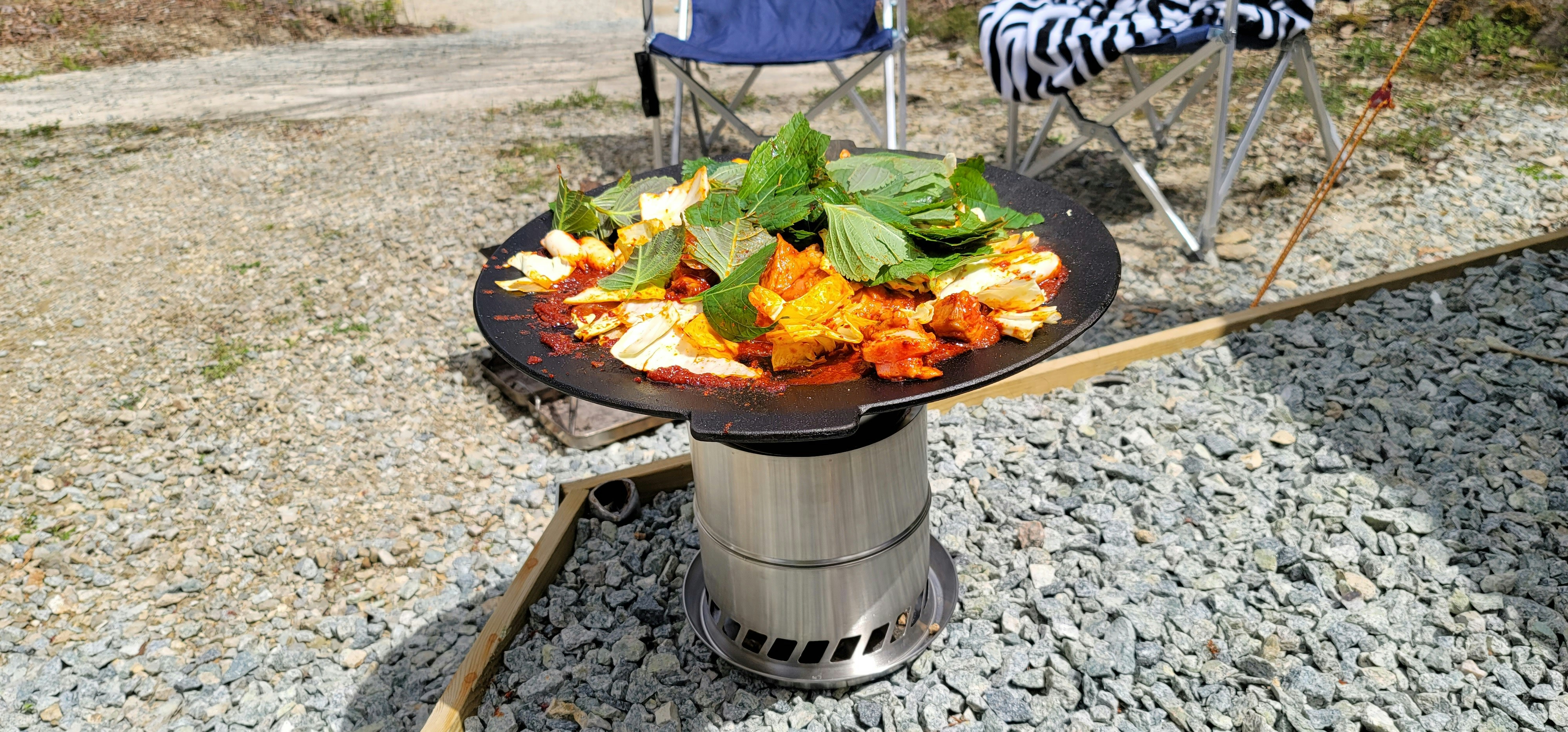
Understanding Grill Types: An Overview
When it comes to outdoor cooking, selecting the right grill type is crucial in ensuring a satisfying culinary experience. The four primary types of grills include charcoal, gas, pellet, and electric grills. Each type offers unique advantages and is designed for different cooking styles, fuel sources, and flavor profiles.
Charcoal grills rely on the combustion of charcoal briquettes or lump charcoal as their fuel source. This traditional method imparts a distinctive smoky flavor to food, which many aficionados appreciate. Charcoal grills are typically favored for their ability to reach high temperatures and create a sear, making them ideal for steaks and burgers. However, the need for time-consuming ignition and temperature management may be a drawback for some users.
Gas grills, on the other hand, use propane or natural gas as their fuel source. They offer convenience with quick start-up times, precise temperature control, and consistent heat distribution. Gas grills are suitable for diverse cooking methods, including grilling, roasting, and even smoking, thanks to available attachments. They are ease-of-use appeals to both novices and seasoned grillers alike.
Pellet grills combine the convenience of gas with the flavor of charcoal. They utilize wood pellets as fuel, which are made from compressed sawdust. When heated, these pellets release smoke, infusing food with a rich, wood-fired taste. Additionally, pellet grills often feature digital controllers making it easier to set desired cooking temperatures. This versatility allows for a broad range of culinary applications—baking, slow-roasting, and even barbecuing.
Lastly, electric grills offer a simplified approach to grilling, making them perfect for indoor use or locations where traditional grilling is not feasible. They operate via electric heating elements and provide consistent temperatures. While they lack the complex flavor profiles of other grill types, electric grills are valued for their ease of use, safety features, and minimal cleanup requirements.
Understanding these differences is essential in determining which grill type aligns best with personal preferences, cooking styles, and calling for different grilling occasions.
Pros and Cons of Charcoal Grills
Charcoal grills have long been favored by grilling enthusiasts for their ability to impart a distinct flavor to food, making it an appealing choice for those seeking to elevate their outdoor cooking experience. One of the primary advantages of charcoal grilling is the rich, smoky flavor that comes from the combustion of charcoal briquettes or lump charcoal. This unique taste is hard to replicate with gas or electric grills, often making charcoal the preferred option for grilling meats like steaks and burgers, which benefit from this flavor profile.
In terms of heat retention, charcoal grills excel as they can maintain high temperatures for an extended period, allowing for better searing and browning of food. This characteristic is particularly advantageous when cooking larger cuts of meat that require longer cooking times. However, this type of grill does have its downsides. One of the notable challenges is temperature control, which can be more difficult than with gas or electric options. Achieving the desired heat level often requires skill and experience, as improper airflow or insufficient charcoal can result in inconsistent cooking temperatures.
Another con associated with charcoal grills is the cleanup process, which can be more labor-intensive. After cooking, users must manage the ashes and remnants of burnt charcoal, which can lead to a lengthy cleaning routine. Additionally, the initial lighting and ignition of charcoal can be less convenient, often requiring lighter fluid or chimney starters, adding to the overall time commitment of using a charcoal grill.
In considering the advantages and disadvantages of charcoal grills, it’s clear they offer a unique grilling experience that caters to specific needs and preferences. Their rich flavor profile and heat retention make them excellent choices for certain cooking scenarios, though the challenges of temperature regulation and cleanup are factors to weigh carefully when deciding on a grilling option.
Exploring Gas Grills: Convenience and Performance
Gas grills have gained significant popularity in the outdoor cooking landscape, primarily due to their convenience and ease of use. Unlike charcoal grills that require a lengthy ignition process, gas grills can be fired up with the simple push of a button. Most modern gas grills are equipped with efficient ignition systems that ensure quick lighting, allowing cooks to start grilling within minutes. This time-saving advantage is particularly appealing to those who seek to grill without the extensive preparation associated with other methods.
Temperature regulation is another key feature of gas grills that enhances the grilling experience. Many models come with built-in thermometers and adjustable burners, allowing users to control the heat precisely. This feature is particularly beneficial for grilling various types of food, as it enables consistent cooking results whether you are searing steaks or roasting vegetables. The ability to maintain a steady temperature helps prevent overcooking and promotes evenly cooked meals, which is essential for both flavor and safety.
When considering gas grills, it is important to explore the differences between propane and natural gas options. Propane grills are portable and can be used anywhere a propane tank is available. In contrast, natural gas grills require a gas line installation and are typically stationary. Both options come with their advantages: propane tends to deliver a higher BTU output, leading to quicker heating, while natural gas is more economical in the long term for frequent grillers due to its lower cost.
Maintaining a gas grill is generally straightforward, necessitating simple cleaning and occasional inspections of the burners and connections for leaks. Regular upkeep ensures optimal performance and longevity, allowing for enjoyable grilling sessions for years to come. In evaluating gas grilling as an option, one should carefully consider these aspects to determine if it aligns with their cooking preferences and lifestyle.
Pellet and Electric Grills: The Modern Alternatives
In recent years, pellet and electric grills have emerged as popular choices among grilling enthusiasts who seek convenience without compromising on flavor. Pellet grills, in particular, are known for their ability to impart a rich, smoky flavor to meats and vegetables while being remarkably user-friendly. They operate by burning compressed wood pellets, which offer various wood flavors, allowing for a customized grilling experience. This feature, coupled with digital temperature control, ensures that users can achieve consistent cooking results with minimal effort. As such, pellet grills represent a fusion of traditional smoking techniques and modern technology, appealing to both novices and seasoned grillers alike.
Electric grills, on the other hand, cater to a different demographic, primarily those with limited outdoor space or strict grilling regulations. Ideal for apartments or condominium settings, electric grills do not produce smoke, making them compliant with most residential restrictions. They are straightforward to operate—simply plug them in, set the desired temperature, and begin grilling. This hassle-free operation makes electric grills a compelling option for busy individuals or families who wish to enjoy grilled fare without the time commitment typical of other grilling methods. Furthermore, their compact size allows for easy storage, making them a versatile choice for those with space constraints.
When selecting between pellet and electric grills, factors such as cost, portability, and versatility should be taken into consideration. Pellet grills, while initially more expensive, often offer a wider range of cooking techniques, from low and slow smoking to searing. Alternatively, electric grills tend to be more budget-friendly, especially for those new to grilling. Therefore, understanding your unique lifestyle and cooking ambitions is essential. Whether you opt for the flavor-enhancing qualities of a pellet grill or the convenience of an electric model, both options present modern alternatives that can elevate your grilling experience.
If you’re interested in purchasing the item you seek, please click the link for additional details: #americanachoice.
https://amzn.to/3SBN3Oy
AFFILIATE DISCLOSURE: I am an affiliate for this company, I am not a paid employee.
I may receive a commission if you click a link on this page and choose to purchase something.
You can rest assured I will only share things I believe in and will be valuable to you.


